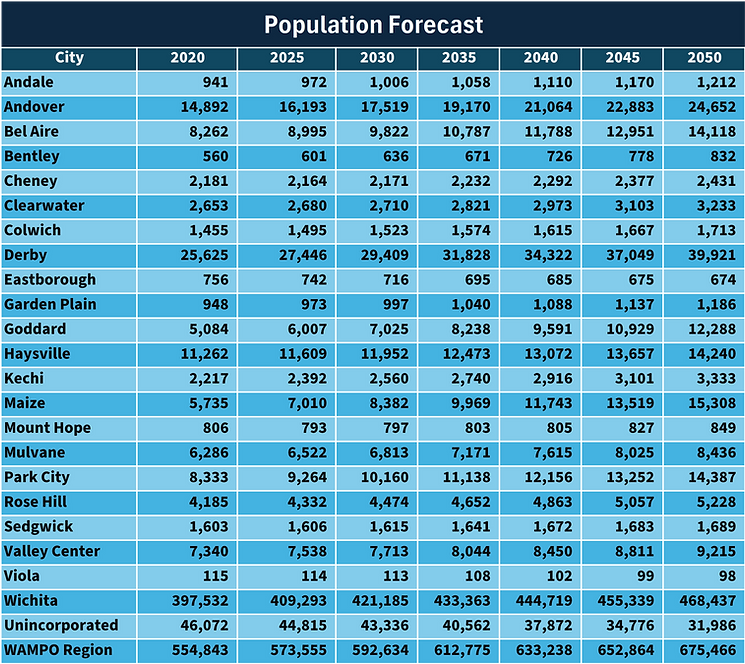WAMPO Population Projections
Starting with 2020 decennial census populations, this table contains population projections for the WAMPO region and all of its municipalities to the year 2050. The projections were developed in partnership with the Center for Economic Development and Business Research (CEDBR) and approved by WAMPO's Transportation Policy Body on August 13, 2025.

Population Projection Development
Overview
WAMPO partnered with the Center for Economic Development and Business Research (CEDBR) to produce community-level population projections. CEDBR applied a standard age-cohort survival model, which advances the resident population forward over time while accounting for demographic change. This approach is widely used in demographic analysis and supports consistent, transparent, and replicable results.
Core Model Components
The model characterizes population change through four components:
-
Aging of the population
-
Deaths
-
Births (fertility)
-
Net migration (in- and out-movement)
Incorporating a Detailed Migration-Rate Calculation
To more accurately reflect recent growth trends in the WAMPO region, CEDBR implemented a detailed methodology for calculating the migration component of the population age-cohort survival model. Among several factors considered for migration, historical building-permit data was included, allowing for projections to more reflective of the circumstances of individual communities.
Regional Constraint
Incorporating a regional constraint on total population growth based on the region's previously forecasted population figures is a critical aspect of ensuring the accuracy and relevance of the demographic forecasting methodology. This approach grounds these projections in a realistic framework, ensuring consistency between individual community forecasts and overarching regional expectations.
Approval
After consideration and recommendation by WAMPO's Technical Advisory Committee (TAC), these projections were approved by WAMPO's Transportation Policy Board (TPB)on August 13, 2024 and have since been integrated into the Metropolitan Transportation Plan 2050 (MTP 2050).
